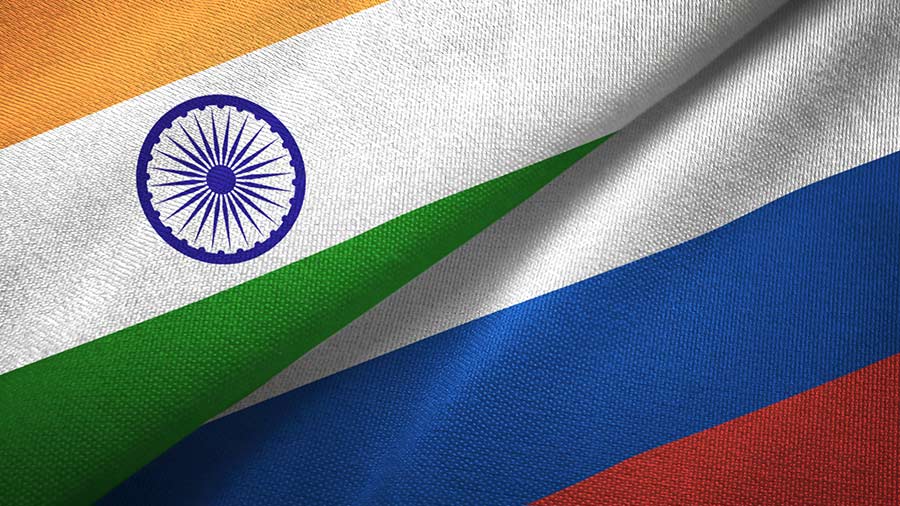Today, the West is going ballistic, with a spate of UN resolutions against Russia. India is abstaining, given its friendly ties with Russia. But there was a time when India was at the receiving end of relentless Western resolutions at the UN and the erstwhile Soviet Union used its veto power to save India.
Between 1957 and 1971, the Soviet Union used its veto power six times to torpedo resolutions against India.
February 20, 1957- When the UN tried to interfere in the Kashmir matter
After the British left India, Kashmir had signed an instrument of accession and decided to become a part of the Union of India.
Yet, on February 20, 1957, Australia, Cuba, the UK and the US brought a resolution, requesting the UNSC President to ask India and Pakistan to resolve the matter. The armies of both the countries were also to be withdrawn, as per the draft resolution.
Then there was also a proposal for the deployment of UN troops in Kashmir on a temporary basis. At that time, the Soviet Union vetoed the proposed resolution, whereas Sweden abstained from voting.
December 18, 1961- When the West displayed outrage over Goa and Daman & Diu
In 1961, India gained true freedom from colonialism, when the Portuguese were ousted from Goa and Daman & Diu. The West was however unhappy. After all, Western powers couldn’t tolerate the end of their imperialist agenda in India. So, France, Turkey, the UK and the US brought a resolution against India at the UNSC. It had objected to India’s use of armed forces.
India was asked to remove its forces and restore the situation that existed prior to December 17, 1961. Chile, China, Ecuador, France, Turkey, the UK and the US supported the resolution.
However, the Soviet Union, Sri Lanka, Liberia and the UAE voted against the resolution. With Soviet Union’s support, India was able to steer clear of the resolution.
June 22, 1962- Kashmir issue was raised again
On June 22, 1962, another vile attempt was made to internationalise the Kashmir issue.
With US support, Ireland brought a resolution in the Security Council that asked India and Pakistan to resolve the Kashmir dispute. The two countries were asked to create a conducive atmosphere for an amicable resolution.
Again, it was the USSR that vetoed the resolution. Romania too voted against the resolution. And India once again avoided external interference in Kashmir.
December 4, 1971- demand fit ceasefire during the Bangladesh Liberation
In 1971, India and Pakistan went to war and soon it became clear that Pakistan was headed for a humiliating defeat. The West was naturally alarmed. So, under American leadership, a proposed resolution was brought to declare a ceasefire on the Indo-Pak border. Argentina, Belgium, Burundi, China, Italy, Japan, Nicaragua, Sierra Leone, Somalia, Syria and the US supported the resolution.
Yet, the Soviet Union exercised its veto power, which allowed India to keep overwhelming the Pakistani forces.
December 5, 1971- attempt to use refugees for a ceasefire
With their first resolution failing, the countries of Argentina, Belgium, Burundi, Italy, Japan, Nicaragua, Sierra Leone and Somalia proposed another ceasefire. This time they claimed it was necessary to ensure the return of refugees.
The Soviet Union again vetoed the resolution against India, while the US supported the resolution. Again, India was able to continue its blistering campaign against the Pakistani military forces.
December 14, 1971- the Soviet Union vetoed the third resolution during the Indo-Pak war
On December 14, 1971, one last desperate attempt was made to save Pakistan from a major humiliation.
A US-sponsored resolution proposed that both India and Pakistan should pull back their forces and declare a ceasefire.
Again, several countries voted in favour of the resolution, while Poland voted against it and the UK and France abstained. The important part was that the USSR vetoed the US-sponsored resolution against India yet again.
What happened thereafter is known to the world at large. On December 16, 1971, 93,000 Pakistani soldiers surrendered before the Indian Army and Bangladesh was ultimately liberated from the clutches of Pakistan.
Read more: JFR Jacob: The Indian who masterminded the fall of Dhaka
Yet, it was the USSR that played a pivotal role in fending away the pressure that was being mounted against New Delhi.
If you need a moral compass to decide why India is abstaining from resolutions against Russia, just take a look at the history of the Soviet Union exercising veto power in India’s favour.
